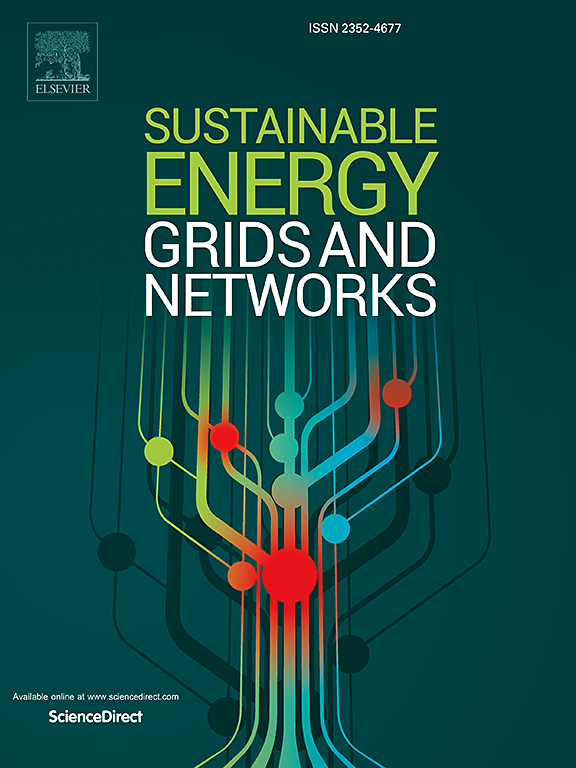Optimization of the electric vehicle charging strategy problem for sustainable intercity travels with multiple refueling stops
IF 4.8
2区 工程技术
Q2 ENERGY & FUELS
引用次数: 0
Abstract
Electric vehicle (EV) drivers considering long-distance trips still face range anxiety due to the limited range of EVs and the scarcity of charging stations. Thus, it becomes important to ensure the feasibility of the selected route and determine an optimal charging strategy. As a crucial aspect of decision support for EV drivers, this study proposes a mixed integer linear programming (MILP) approach for the EV charging strategy problem (EVCSP), incorporating a piecewise linear approximation technique to address the challenges posed by nonlinear charging times. The proposed optimization model, namely CSPM determines where, when, and how much to charge an EV for a specified route to minimize travel time and cost. The solution time of large-scale test problems and a case study on Türkiye reveal the robustness and reliability of the CSPM. Furthermore, two multi-objective optimization methods (the weighted sum and the lexicographic method) are applied to the case study, and the results are analyzed. The results indicate that the travel cost is more sensitive to the selected charging strategy, with a range of 46.09 % across the applied charging strategies, whereas travel time remains more resilient, with a maximum fluctuation of 19.77 %. A comparative analysis with a full charging strategy reveals that the CSPM reduces the travel time by 60.1 % and improves the cost efficiency by 105.72 %.
多加油站可持续城际旅行的电动汽车充电策略优化问题
由于电动汽车(EV)的续航里程有限和充电站稀缺,考虑长途旅行的电动汽车(EV)驾驶员仍然面临续航里程焦虑。因此,确保所选路线的可行性并确定最佳充电策略变得非常重要。作为为电动汽车驾驶员提供决策支持的一个重要方面,本研究针对电动汽车充电策略问题(EVCSP)提出了一种混合整数线性规划(MILP)方法,并结合了片断线性近似技术,以应对非线性充电时间带来的挑战。所提出的优化模型(即 CSPM)可确定在指定路线上为电动汽车充电的地点、时间和充电量,从而最大限度地减少旅行时间和成本。大规模测试问题的求解时间和图尔基耶案例研究揭示了 CSPM 的鲁棒性和可靠性。此外,案例研究还采用了两种多目标优化方法(加权求和法和词典法),并对结果进行了分析。结果表明,旅行成本对所选的收费策略更为敏感,在各种收费策略中的波动幅度为 46.09%,而旅行时间则更具弹性,最大波动幅度为 19.77%。与完全充电策略的对比分析表明,CSPM 可将旅行时间缩短 60.1%,将成本效率提高 105.72%。
本文章由计算机程序翻译,如有差异,请以英文原文为准。
求助全文
约1分钟内获得全文
求助全文
来源期刊

Sustainable Energy Grids & Networks
Energy-Energy Engineering and Power Technology
CiteScore
7.90
自引率
13.00%
发文量
206
审稿时长
49 days
期刊介绍:
Sustainable Energy, Grids and Networks (SEGAN)is an international peer-reviewed publication for theoretical and applied research dealing with energy, information grids and power networks, including smart grids from super to micro grid scales. SEGAN welcomes papers describing fundamental advances in mathematical, statistical or computational methods with application to power and energy systems, as well as papers on applications, computation and modeling in the areas of electrical and energy systems with coupled information and communication technologies.
 求助内容:
求助内容: 应助结果提醒方式:
应助结果提醒方式:


